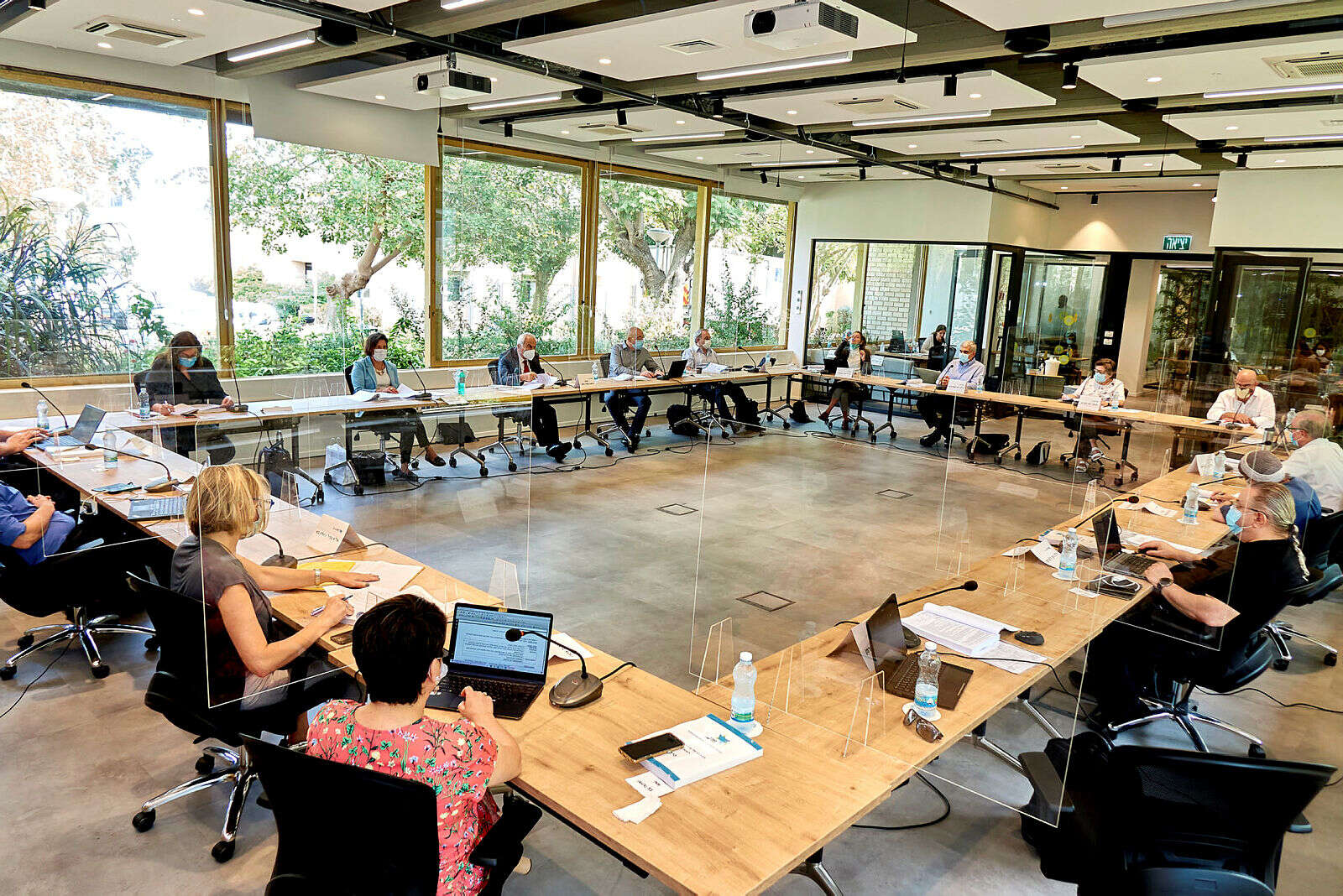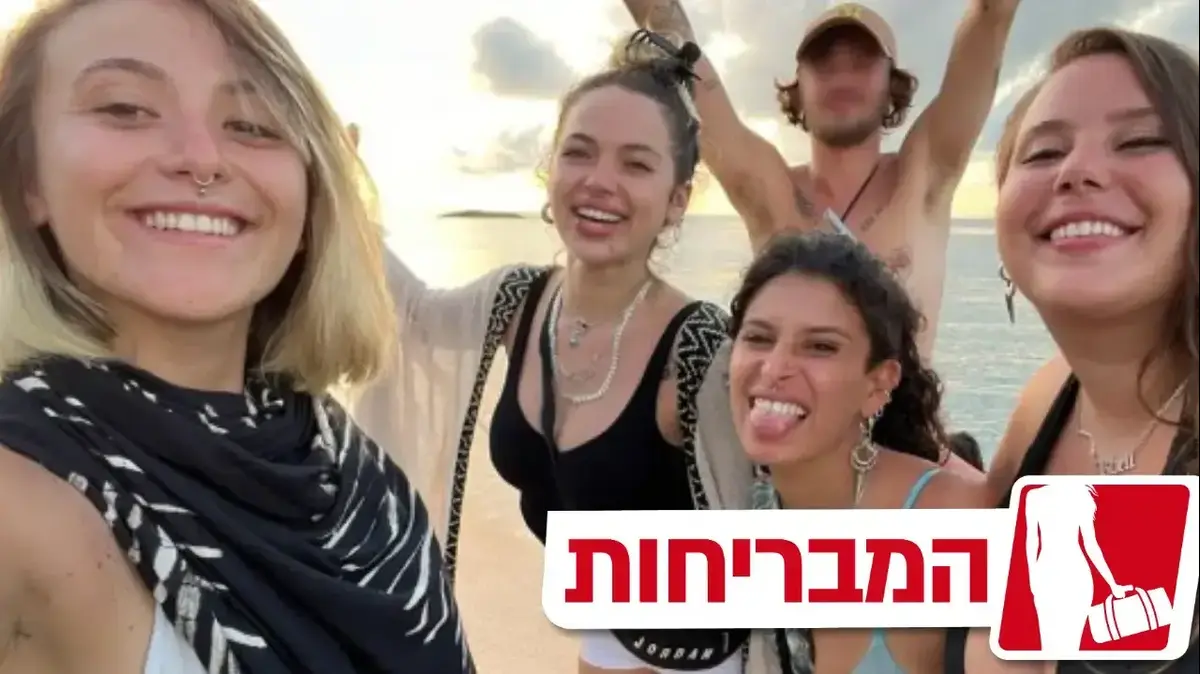After two days of dramatic discussions, the Drug Basket Committee for 2022 has decided that 135 drugs, new technologies and treatments will enter the basket this year and will be provided free of charge for 200,000 patients. The cost of the annual addition to the basket is NIS 550 million, the highest in recent years. The committee's decisions will be presented at a press conference to Health Minister Nitzan Horowitz, and they will be brought to the government's approval at the next meeting.
This year, the public committee to expand the drug portfolio was headed by Prof. Yonatan Halevi and the committee's coordinator, Dr. Osnat Luxenburg. The committee held 18 meetings over 3 months and selected from 850 drugs and technologies the 128 drugs that are most important to the committee.
Among the treatments included in the basket: artificial pancreas for children with diabetes, genetic tests for rare diseases, fertility preservation for women with low ovarian reserve, orphan drugs, effective treatments for multiple sclerosis, prosthesis for amputees, funding for transportation for children with dialysis, a cochlear implant for deafness , Upgrade to hearing implant systems and more.
This year, about 15 treatments were added for breast cancer patients, lung cancer and gastrointestinal cancer at a cost of about NIS 116 million, about 20% of the basket budget.
However, this year as well as last year, there was a reduction in the proportion of drugs intended for cancer patients in the drug basket.
Among the most expensive treatments that entered the drug basket for a single patient this year is the drug "Gatex", which is designed to treat ten children who suffer from "short bowel syndrome" and need infusion.
It costs NIS 900,000 per child per year.
Another unique and expensive treatment that enters the basket of drugs is Tacartus, which is intended for 30 lymphoma patients at a cost of NIS 1.228 million per patient.
This is a customized treatment with CAR-T technology, an innovative gene therapy in which blood is taken from the patient, undergoes genetic engineering so that the cells of the immune system know how to "attack" the cancer cells and is returned to the patient.
Bear in a treatment that may lead to a complete cure and at least 4 years of life.
Another expensive treatment that enters the basket is Oxalomo, an orphan drug at a cost of NIS 1.183 million per patient, intended for 24 patients from the Druze community.
It is a treatment for the rare genetic disease of primary hyperoxaluria, which leads to terminal kidney failure, irreversible damage to all organs of the body and death at a young age.
Oxalomo,
This year, a psychiatrist was first appointed as a member of the basket committee.
In light of the request of the psychiatrists who claimed that the field was discriminated against.
In the field of mental health, this year the drug Rexulti for depression entered the drug basket as a second line of treatment and the drug Silencro - a treatment to reduce alcohol consumption in 1,700 alcohol-addicted adults.
The committee members referred to the psychiatrists' claim in the concluding discussion and noted that "not everything is in the medicine basket. There are psychiatric treatments worth hundreds of millions of shekels that the Ministry of Health has introduced through additions to the health funds."
Another committee member said that "there is no stigma or contempt for mental health here."
In addition, four treatments were introduced that will be given this year alone as a result of a one-time budget surplus of about NIS 48 million, which stems from the fact that the drugs will be given to patients starting in February but will also be budgeted for January.
In this framework, a pilot will be used in the use of a neurotransmitter for the treatment of patients suffering from drug-resistant depression.
Treatment will be given to a number of individual patients.
Another pilot will be conducted using the immunotherapeutic drugs Opedivo and Kitroda, which will be given to several dozen patients with metastatic melanoma in a non-surgical condition.
Another treatment that will be given once a year is the Gardasil vaccine against the papillomavirus that causes cervical cancer for men and women aged 21-26.
A lump sum will also be given for the treatment of the drug Inharto for breast cancer for a small group of patients, who do not exactly meet the indication in the medicine basket.
The drugs left out
However, alongside the treatments that have come in there are also disappointments.
One of the treatments rated as most essential did not fit into the drug basket.
This is the drug Drelex for the first line of treatment for patients with multiple myeloma.
It is a treatment that has already been given in the public basket in 26 countries, it allows for a five-year respite from the disease and extends by about 15% the life expectancy of these patients.
Other treatments that did not make it into the drug basket at the last minute are the drugs for diabetes Osmic and Rebalisos.
Among other things, there was concern about the misuse of these drugs, which are also sold for weight loss.
Another treatment that did not enter the basket is the drug Kinlock for the advanced treatment of gastrointestinal cancer at a cost of over NIS 300,000 per patient, when committee members stated that it was a "pig price".
Additional treatments left out of the basket: terminations of pregnancy for women aged 33-40 for non-medical reasons and treatment Zosapta for acute myeloid leukemia.
Decrease in the amount of drugs for cancer patients
In "Israel Today" we published the data according to which last year the share of cancer drugs fell to 14% of the addition to the basket, instead of about 42% on average as it was in previous years.
We also published the request of the patients' associations to attach an expert in oncology to the members of the committee.
But again this year only about a quarter of the drug basket budget was devoted to cancer patients and many drugs for cancer patients were postponed due to their cost.
However, about 15 oncological drugs have been introduced, some of which are intended for the customized treatment of patients with certain mutations.
Therefore, only 585 patients will benefit from the new treatments at a cost of NIS 116 million.
The committee members were also required to deal with the dilemma and difficulty when they were asked to decide on drugs that prolong life in a few months at a cost of NIS 300,000 per patient per year.
A committee member said that "the oncology drugs are the only ones that are not in the HMOs 'supplementary insurance. People will sell the house and life to fund the family members' treatments."
List of recommendations of the public committee ... b
The committee member added: "We are in a situation that looks at months but there are people for whom it is a world and its fullness. I understand that considerations take into account the cost of a month of life, but one must take into account that oncology people have no choices."
Another committee member noted: "As a physician it is difficult to withstand serious patients. We have a moral duty that is higher. This year there is no oncologist on the committee and we have to take care of that."
Another dilemma arose in the discussion about the introduction of the vaccine "Baxero", against meningitis caused by meningococcus B (the violent bacterium).
This is a vaccine that costs NIS 166 million, about one-fifth of the entire drug basket budget.
A committee member noted that "only 10 children will 'benefit' from the vaccine and be saved from a serious illness."
The members noted that the vaccine has already been given to a small group of children at risk.
Another member of the committee: "There is no better treatment than vaccines, and with all this with great sorrow it is impossible to introduce this vaccine just because of the cost. Its burden on the basket budget is too great."
A representative of one of the health funds said: "Our nursing staff has been on the verge of collapse for two years due to treatment and vaccination in Corona. To introduce another vaccine this year - this is the straw that will break the camel's back."
Were we wrong?
Fixed!
If you found an error in the article, we'll be happy for you to share it with us














